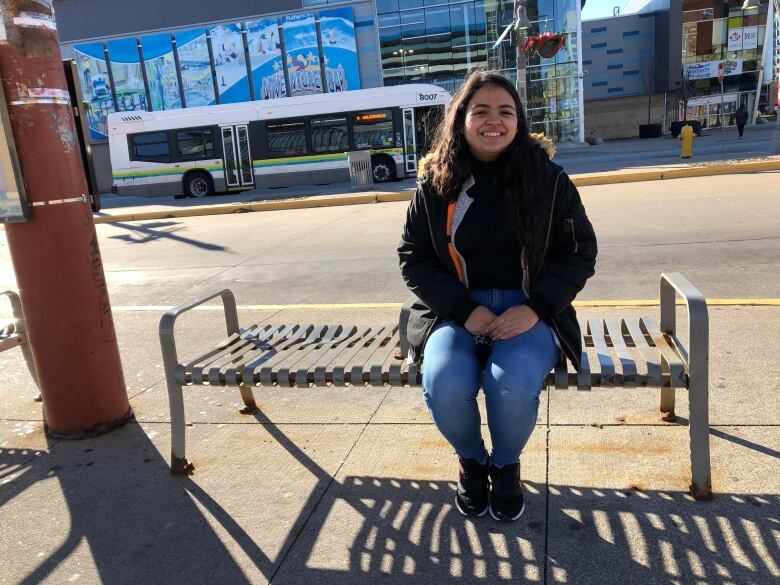Meet the people impacted in a big way by Transit Windsor's service cuts
Fewer buses on the road has put more pressure on students

A reduction in bus service brought on by drivers refusing the COVID-19 vaccination is having an impact on some of Transit Windsor's most loyal customers: students.
The transit commission rolled back service this week as it looks to hire at least 40 new bus drivers. It's currently running on an "enhanced" Saturday schedule, with some routes leaving earlier and ending later where possible.
Reduced frequency means some riders, like St. Clair College student Navjeet Singh, are having to wake up earlier and return home later, as they juggle the new schedule.
"So I usually wake up at around 5:30 in the morning.. and I go to college at 8:30 am," he said. "If I miss a bus, I'm going to miss my class. It's as simple as that," Singh says, whose only mode of transportation is the bus.

Shubham Sharma, president of the Student Representative Council at St. Clair, points to already busy buses at rush hour that are now even more packed.
"The first concern is regarding the crowded bus. So during the peak hours, for example, if a student is having classes at 8 a.m., they have to plan accordingly. If the buses are jam packed, they have to wait for the bus for like after half half an hour or one hour. So it's very concerning for us."
Driver shortage
Transit Windsor says it is prioritizing adding buses to routes that service the city's student population, such as the 1C and 2, and is working to make sure the interruption isn't long term.
It anticipates other routes, including the 5, 8, 14 and 518X, will also see frequency of service increase.
"Those routes currently run in the ten minute frequency with Saturday service, so they're down to a 20 minute frequency," explained Tyson Cragg, the executive director of Transit Windsor. "But we're going to take every available bus that we have with extra operators and slot them in to the the service,"
To do that, Transit Windsor says it needs to hire drivers.
Cragg says about 20 are on unpaid leave for not being vaccinated. They have until Feb. 15, 2022, to get the shot, at which point they will be fired.
Advocates push for improved service
But according to some students and advocates, not having enough buses on the road has been an issue for a long time.
Jessica Bondy, the project lead at Activate Transit Windsor Essex, said the city needs to take a closer look at ways to improve funding for public transit, including building a bigger bus terminal.

"It's unrealistic to want to improve services or add buses when we don't have the space to do that. We can drastically improve services if we had a bigger facility. The current facility is 50 years old," she said.
"How do we make sure we are not in this position — where things are stretched so thin — 50 years down the line?"
Bondy said her group is talking to St. Clair College and University of Windsor students to collect more information on how they are impacted.
"We were at St. Clair College actually earlier this week, and the general consensus was, 'what are you going to do'? Because there's a general sense that their hands are tied. Students should be able to rely on transit. And they cannot."